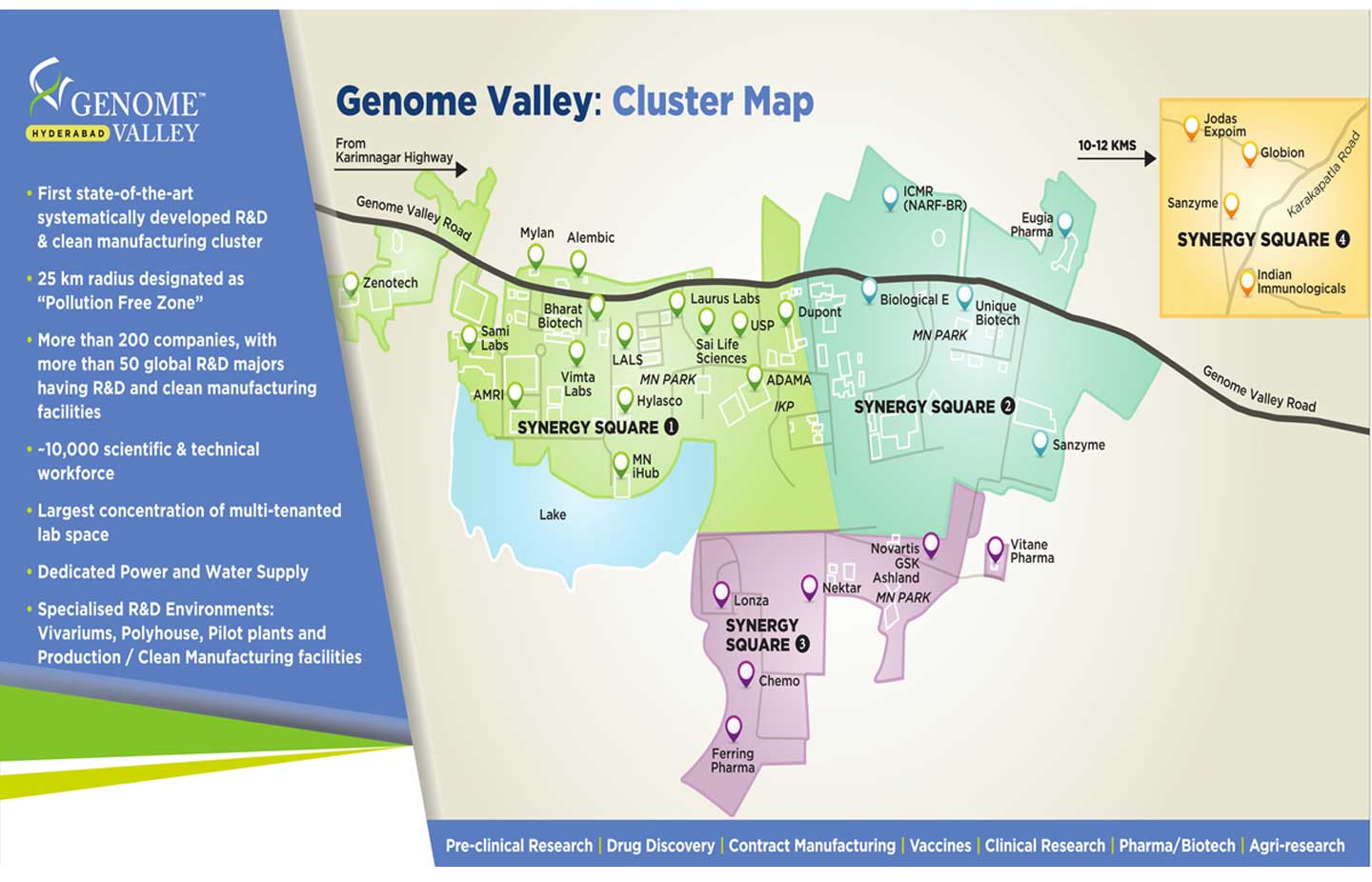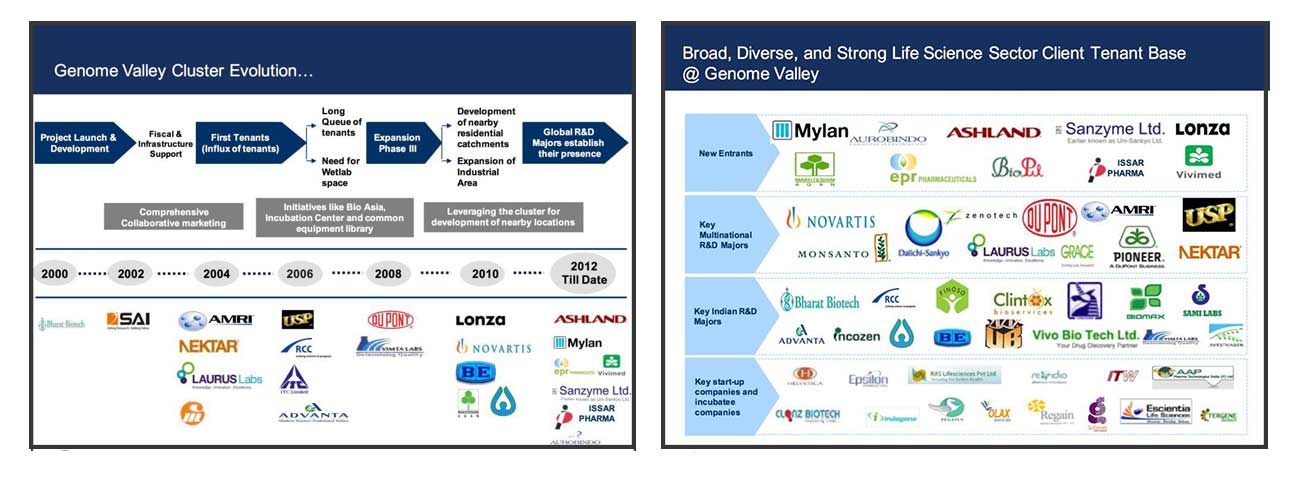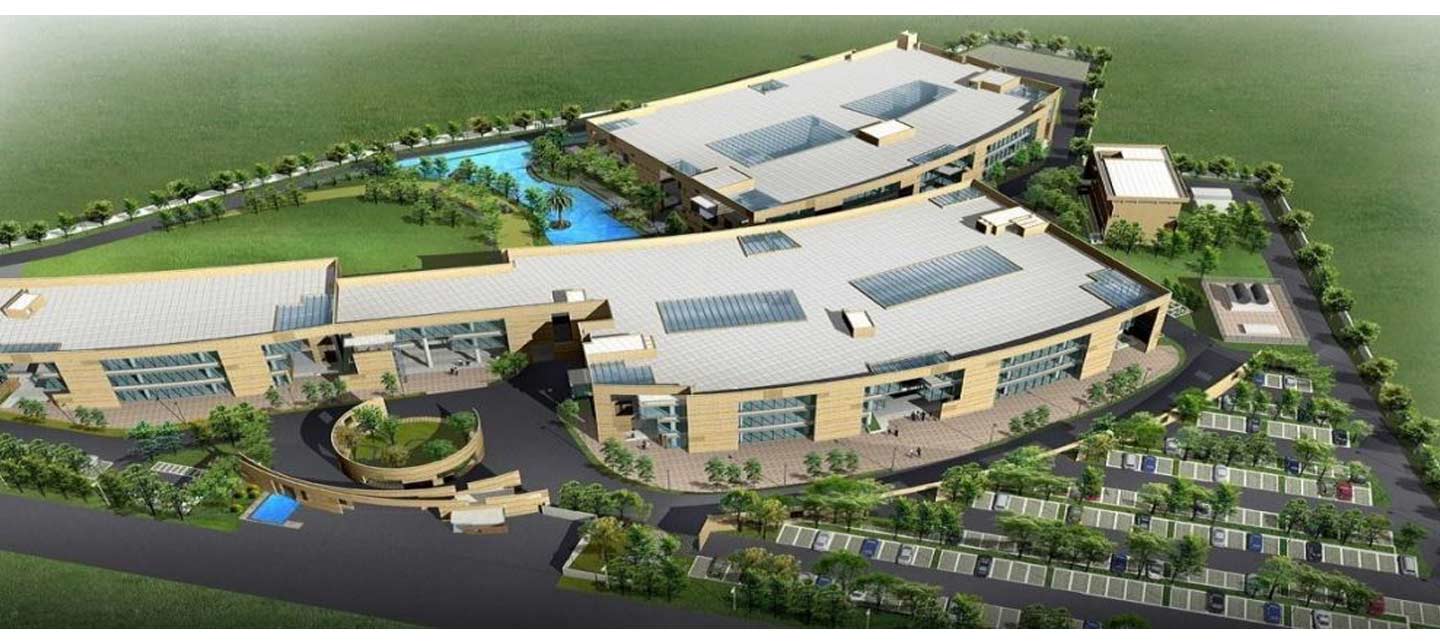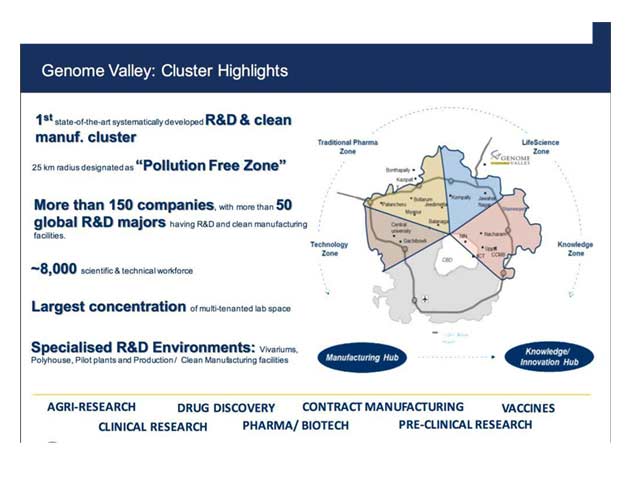
The Emerging Story Of Genome Valley Cluster
A major aspect when planning to build a science cluster is the role it is destined to play on the national and international scene. The cluster stimulates and manages the flow of knowledge and technology amongst universities, R&D institutions, companies, and markets; it facilitates the creation and growth of innovation-based companies through incubation and spin-off processes, and provides other value-added services together with high-quality space and facilities. Science clusters could potentially have a very positive impact on the economies of emerging countries and contribute significantly to their development.
There is a problem in trying to measure the success of a science or technology park: there is no clear consensus on the definition of such success. Some authors use financial criteria (investment, turnover etc.) while others take indicators related to innovation patterns (number of start-ups, patents, new products launched by incubated companies etc.).
Nevertheless, each cluster has a different impact. The success of an Genome Valley initiative of this kind is mainly due to policies, the economic structure of the region, Connectivity, Smart technology to ensure optimal management of energy, water and electricity distribution networks, the internal organization of the cluster and the relations with local organizations, including local, regional and national government & universities. These developments have encouraged healthy mix of companies in the realm of agribiotech, CRM, biopharma, vaccine manufacturing, regulatory and testing and other related areas.

Genome Valley spread across 600 Sqkm is India’s first state-of-the-art systematically developed Life-sciences cluster was conceptualized in the year 1999 in Shamirpet, Hyderabad. It has over 200 life science company and an employment strength of 10,000 people. The 25km radius designated as Pollution Free Zone with specialized R&D and Clean manufacturing environments. It has the largest concentration of R&D focused firms and India’s biggest vaccine manufactures at a single location. The cluster has excellent support infrastructure for R&D activities, created by the Telangana State Industrial Infrastructure Corporation (TSIIC) through public private partnerships with some major partners that include MN and IKP Trust (ICICI Group). Genome Valley has dedicated support infrastructure for R&D; incubation facilities, dedicated power supply, dedicated water supply etc. With an established presence of several global and Indian Life science companies, globally renowned research institutions, and best-in-class supporting specialized infrastructure, today Genome Valley is the largest and most vibrant R&D cluster in the country.
Companies present in Genome Valley
The Cluster is the home to not only Global giants like- Novartis, GSK, Ashland, DuPont, Nektar, Mylan, USP, but also National majors like- Alembic Pharma, Laurus Labs, Bharat Biotech, Biological E and Indian Immunologicals. A list of start-up companies that have incubated and matured from Genome Valley, are – Clonz Biotech, Tergene Biotech, Izene Lifesciences, Sci Genome, AAP Pharma and various others.

About MN Park
Mission Neutral (“MN”) Park formerly known as Alexandria Knowledge Park is a cluster of life sciences real estate options which focuses on turnkey pre-leased industrial assets, across the value chain, to offer integrated solutions to Indian and multinational companies. The R&D assets in Genome Valley, Hyderabad were acquired from US based Alexandria REIT and have been rechristened as MN Park. It is spread over 400 acres including build-up facilities of around 600,000 SF. provided to global tenants like Novartis, GlaxoSmithKline, Mylan and Ashland Inc.
Government Policy to support growth in Genome Valley
The Govt of Telangana is actively supporting the growth of the park by strategizing new framework policies to promote the Life science including biotechnology, pharma, nutraceuticals and medical devises sectors. Promoting applied R&D and innovation through bridging the gap between industry, academia, and R&D institutions and promotion and strengthening of quality infrastructure. Govt is taking constant efforts to ensure the competitiveness of the sector and making Genome Valley preferred destination for life science activities, by attracting new investments, export opportunity and creating an additional employment opportunity. The Govt has also announced Industrial Area Local Authority (IALA) status for Genome Valley boosting the developing infrastructure.
Taking it Forward
With the pro-active government and the progressive Industrial Policy, Genome Valley has been able to develop a cohesive synergy between the Govt and with Private Partners through various PPP modelled projects. Such initiatives will help not only in sustaining the R&D innovation system but will also help in providing dynamic ecosystem to accelerate discovery and commercialization.

